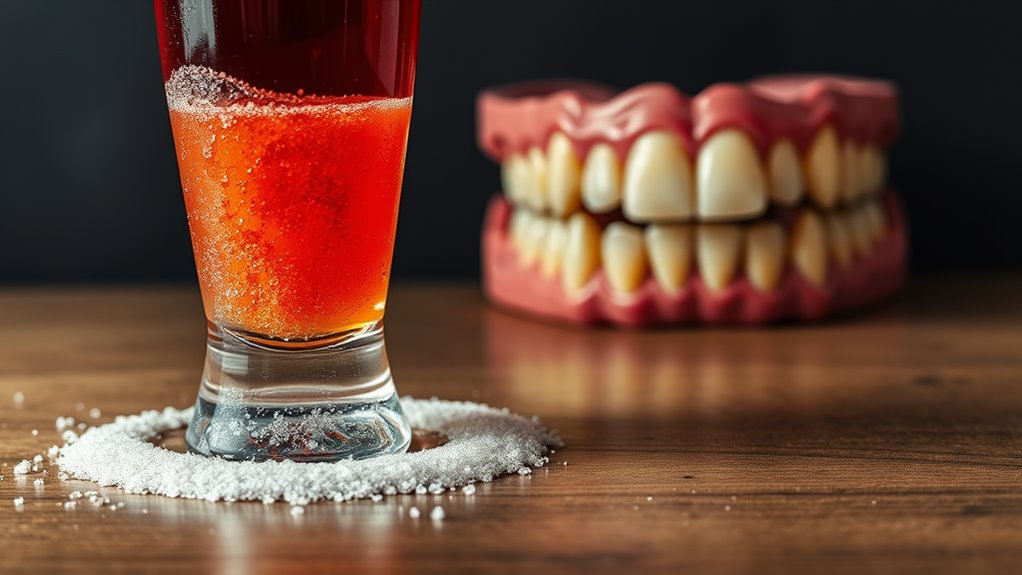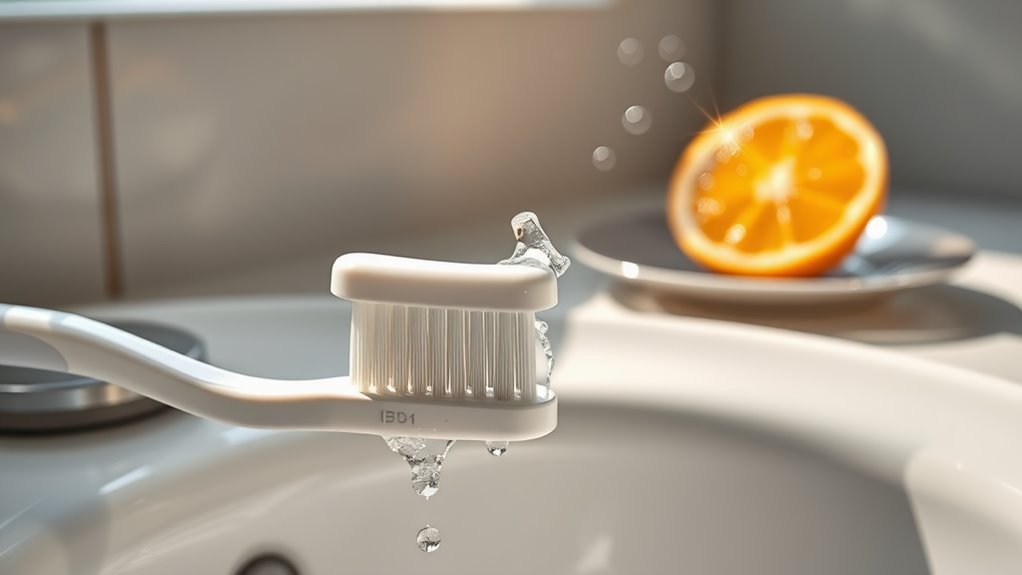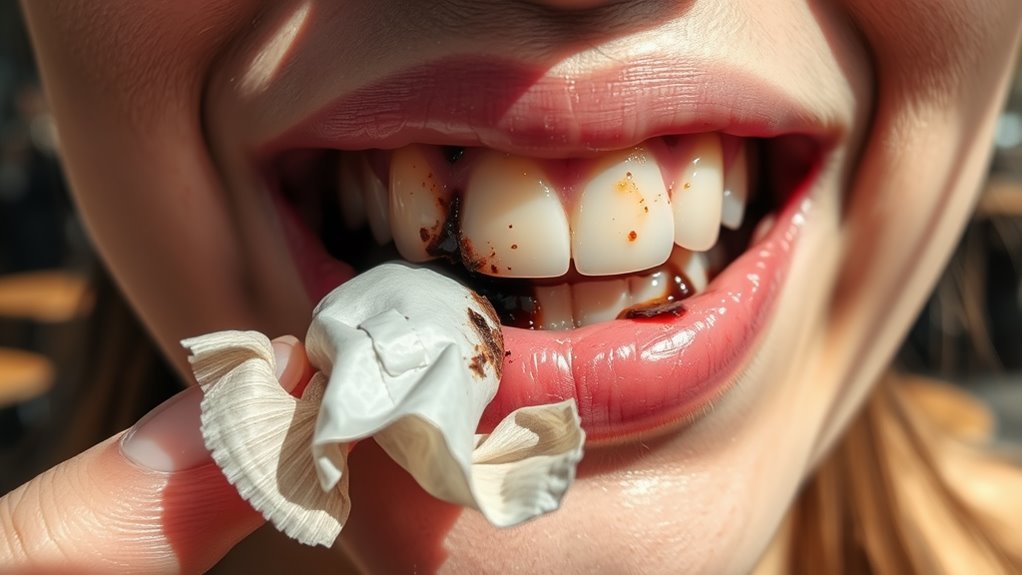What Your Dentist Wishes You Knew About Mouth Health
Your dentist has valuable insights about mouth health that can significantly impact your well-being. Regular check-ups are just the start; proper brushing and flossing techniques play a crucial role too. Many people underestimate how diet influences dental health. Additionally, there are common myths that might mislead you. Understanding these aspects can help you maintain a healthier mouth and prevent future complications. Curious about what else you might be overlooking?
Key Takeaways
- Regular dental check-ups are essential for early detection of problems and overall mouth health maintenance.
- Proper brushing techniques, including angle and duration, significantly impact oral hygiene.
- Flossing daily is crucial for removing plaque and preventing gum disease.
- A balanced diet is vital; limit sugary foods and stay hydrated for optimal gum health.
- Myths about oral care, such as the sufficiency of brushing alone, can lead to neglecting proper hygiene practices.
The Importance of Regular Dental Check-ups
Regular dental check-ups are crucial for maintaining optimal mouth health. These visits allow your dentist to monitor your oral condition, identify potential issues early, and provide you with valuable dentist advice tailored to your needs.
By attending regular appointments, you reduce the risk of cavities, gum disease, and other dental problems that could lead to more extensive treatments later. Early detection allows for timely intervention, which can save you from serious health complications down the line.
Your dentist will also clean your teeth, removing plaque and tartar buildup, ensuring your smile stays bright and healthy.
Don’t underestimate the importance of these appointments; they’re essential for preventing serious issues and keeping your mouth in top shape.
Proper Brushing Techniques for Optimal Oral Care
How can you ensure you’re brushing your teeth effectively? Start by using a fluoride toothpaste and a soft-bristled toothbrush. Angle your brush at 45 degrees to your gums and use gentle, circular motions. Spend at least two minutes brushing, covering all surfaces—outer, inner, and chewing surfaces. Remember that using the correct pressure is essential for protecting enamel and gums.
| Technique | Description |
|---|---|
| Angle | Hold your toothbrush at a 45-degree angle. |
| Motion | Use gentle, circular strokes. |
| Duration | Brush for at least two minutes. |
Remember to replace your toothbrush every three to four months for optimal results!
Understanding the Role of Flossing in Gum Health
Why is flossing often overlooked in daily oral hygiene routines?
Many people underestimate its importance for gum health.
Flossing removes plaque and food particles trapped between teeth, areas your toothbrush can’t reach.
When you skip it, plaque hardens into tartar, leading to gum disease.
This can cause inflammation, bleeding, and even tooth loss if left untreated.
By incorporating flossing into your daily routine, you help maintain healthy gums and reduce the risk of dental issues.
Aggressive flossing can lead to gum irritation, which emphasizes the need for proper technique.
Aim to floss at least once a day, and you’ll notice improvements in your overall mouth health, making it a vital part of your oral care regimen.
The Impact of Diet on Your Teeth and Gums
What you eat plays a crucial role in the health of your teeth and gums. Sugary foods can lead to cavities, while nutrient-rich options strengthen your oral health. Staying hydrated is also essential, as it helps wash away food particles and bacteria, promoting a cleaner mouth. Additionally, being mindful of sugary snacks and desserts can significantly impact your long-term gum health.
Sugars and Cavities Connection
Have you ever wondered how your diet affects your dental health?
The connection between sugars and cavities is crucial to understand.
When you consume sugary foods and drinks, bacteria in your mouth feed on these sugars, producing acid that erodes tooth enamel.
This can lead to cavities if not managed properly.
- Limit sugary snacks and beverages.
- Rinse your mouth with water after consuming sugar.
- Maintain regular dental check-ups for early detection.
Nutrient-Rich Foods Benefits
A balanced diet rich in nutrients plays a vital role in maintaining healthy teeth and gums. Consuming foods packed with vitamins and minerals can strengthen enamel, reduce inflammation, and support overall oral health. Here’s a quick look at some nutrient-rich foods and their benefits:
| Food Type | Key Nutrients | Benefits |
|---|---|---|
| Leafy Greens | Calcium, Vitamin K | Strengthens bones, reduces inflammation |
| Nuts | Magnesium, Vitamin E | Protects gums, fights bacteria |
| Dairy Products | Calcium, Vitamin D | Strengthens enamel, promotes saliva production |
Incorporating these foods can significantly enhance your oral health.
Hydration’s Role in Oral Health
Hydration is crucial for maintaining optimal oral health, as it directly affects the condition of your teeth and gums.
Drinking enough water helps wash away food particles and bacteria, reducing the risk of cavities and gum disease.
Here are some key points to consider:
- Water keeps your mouth moist, promoting saliva production, which naturally protects against decay.
- Staying hydrated helps prevent dry mouth, a condition that can lead to bad breath and oral infections.
- Proper hydration supports overall health, which in turn benefits your oral hygiene routine.
Make sure to drink plenty of water daily to support your mouth health effectively.
Common Myths About Mouth Health Debunked
You might believe that sugar is the sole culprit behind tooth decay or that simply brushing your teeth guarantees good oral health.
However, these common myths can mislead you about proper mouth care.
Let’s clarify these misconceptions and explore what really affects your oral health. Understanding that bacteria feed on various carbohydrates can help you make better dietary choices for your teeth.
Sugar Causes Tooth Decay
How often do you hear that sugar is the primary culprit behind tooth decay?
While sugar plays a role, it’s not the sole offender.
It’s actually the bacteria in your mouth that thrive on sugar, producing acids that damage your enamel.
Here’s what you should know:
- Not all sugars are equal; natural sugars can be less harmful.
- Frequency of sugar consumption matters more than the amount.
- Good oral hygiene can mitigate sugar’s effects.
Understanding these points can help you make smarter choices for your mouth health.
Brushing Equals Healthy Teeth
What if brushing alone isn’t the magic solution for achieving healthy teeth?
While brushing is essential for removing plaque and food particles, it’s just one part of a complete oral care routine.
You also need to floss daily, which removes debris between teeth that your brush can’t reach.
Additionally, regular dental check-ups are vital for early detection of issues.
Don’t forget to maintain a balanced diet low in sugar and acidic foods, as these can harm your enamel.
Remember, achieving optimal mouth health requires a combination of good practices, not just brushing.
Stay proactive for a healthier smile!
The Connection Between Oral Health and Overall Health
Your mouth serves as a gateway to your body, and poor oral hygiene can lead to serious health issues.
Here’s how it connects:
- Gum disease can increase your risk of heart disease.
- Oral bacteria may contribute to respiratory infections.
- Poor dental health can complicate diabetes management.
- Regular dental care is crucial for preventing gum disease and protecting cardiovascular health.
Recognizing the Early Signs of Dental Issues
Maintaining good oral health not only supports your overall well-being but also helps you catch potential dental problems early.
Pay attention to symptoms like persistent bad breath, swollen gums, or tooth sensitivity, as these can signal underlying issues. If you notice any changes in your bite, discoloration, or pain, don’t ignore them.
Regular dental check-ups allow your dentist to identify problems before they escalate.
Practicing good hygiene, including brushing and flossing daily, can also prevent many issues.




